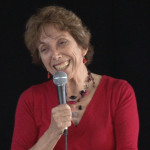My reading
Haftarah Parashat B’midbar
Hosea 2: 1-22
2:1 וְֽ֠הָיָה מִסְפַּ֤ר בְּנֵֽי־יִשְׂרָאֵל֙ כְּח֣וֹל הַיָּ֔ם אֲשֶׁ֥ר לֹֽא־יִמַּ֖ד וְלֹ֣א יִסָּפֵ֑ר וְֽ֠הָיָה בִּמְק֞וֹם אֲשֶׁר־יֵאָמֵ֤ר לָהֶם֙ לֹֽא־עַמִּ֣י אַתֶּ֔ם יֵאָמֵ֥ר לָהֶ֖ם בְּנֵ֥י אֵֽל־חָֽי׃
2:2 וְ֠נִקְבְּצוּ בְּנֵֽי־יְהוּדָ֤ה וּבְנֵֽי־יִשְׂרָאֵל֙ יַחְדָּ֔ו וְשָׂמ֥וּ לָהֶ֛ם רֹ֥אשׁ אֶחָ֖ד וְעָל֣וּ מִן־הָאָ֑רֶץ כִּ֥י גָד֖וֹל י֥וֹם יִזְרְעֶֽאל׃
2:3 אִמְר֥וּ לַאֲחֵיכֶ֖ם עַמִּ֑י וְלַאֲחֽוֹתֵיכֶ֖ם רֻחָֽמָה׃
2:4 רִ֤יבוּ בְאִמְּכֶם֙ רִ֔יבוּ כִּֽי־הִיא֙ לֹ֣א אִשְׁתִּ֔י וְאָנֹכִ֖י לֹ֣א אִישָׁ֑הּ וְתָסֵ֤ר זְנוּנֶ֙יהָ֙ מִפָּנֶ֔יה וְנַאֲפוּפֶ֖יהָ מִבֵּ֥ין שָׁדֶֽיהָ׃
2:5 פֶּן־אַפְשִׁיטֶ֣נָּה עֲרֻמָּ֔ה וְהִ֨צַּגְתִּ֔יהָ כְּי֖וֹם הִוָּֽלְדָ֑הּ וְשַׂמְתִּ֣יהָ כַמִּדְבָּ֗ר וְשַׁתִּ֙הָ֙ כְּאֶ֣רֶץ צִיָּ֔ה וַהֲמִתִּ֖יהָ בַּצָּמָֽא׃
2:6 וְאֶת־בָּנֶ֖יהָ לֹ֣א אֲרַחֵ֑ם כִּֽי־בְנֵ֥י זְנוּנִ֖ים הֵֽמָּה׃
2:7 כִּ֤י זָֽנְתָה֙ אִמָּ֔ם הֹבִ֖ישָׁה הֽוֹרָתָ֑ם כִּ֣י אָמְרָ֗ה אֵלְכָ֞ה אַחֲרֵ֤י מְאַהֲבַי֙ נֹתְנֵ֤י לַחְמִי֙ וּמֵימַ֔י צַמְרִ֣י וּפִשְׁתִּ֔י שַׁמְנִ֖י וְשִׁקּוּיָֽי׃
2:8 לָכֵ֛ן הִנְנִי־שָׂ֥ךְ אֶת־דַּרְכֵּ֖ךְ בַּסִּירִ֑ים וְגָֽדַרְתִּי֙ אֶת־גְּדֵרָ֔הּ וּנְתִיבוֹתֶ֖יהָ לֹ֥א תִמְצָֽא׃
2:9 וְרִדְּפָ֤ה אֶת־מְאַהֲבֶ֙יהָ֙ וְלֹֽא־תַשִּׂ֣יג אֹתָ֔ם וּבִקְשָׁ֖תַם וְלֹ֣א תִמְצָ֑א וְאָמְרָ֗ה אֵלְכָ֤ה וְאָשׁ֙וּבָה֙ אֶל־אִישִׁ֣י הָֽרִאשׁ֔וֹן כִּ֣י ט֥וֹב לִ֛י אָ֖ז מֵעָֽתָּה׃
2:10 וְהִיא֙ לֹ֣א יָֽדְעָ֔ה כִּ֤י אָֽנֹכִי֙ נָתַ֣תִּי לָ֔הּ הַדָּגָ֖ן וְהַתִּיר֣וֹשׁ וְהַיִּצְהָ֑ר וְכֶ֨סֶף הִרְבֵּ֥יתִי לָ֛הּ וְזָהָ֖ב עָשׂ֥וּ לַבָּֽעַל׃
2:11 לָכֵ֣ן אָשׁ֔וּב וְלָקַחְתִּ֤י דְגָנִי֙ בְּעִתּ֔וֹ וְתִירוֹשִׁ֖י בְּמֽוֹעֲד֑וֹ וְהִצַּלְתִּי֙ צַמְרִ֣י וּפִשְׁתִּ֔י לְכַסּ֖וֹת אֶת־עֶרְוָתָֽהּ׃
2:12 וְעַתָּ֛ה אֲגַלֶּ֥ה אֶת־נַבְלֻתָ֖הּ לְעֵינֵ֣י מְאַהֲבֶ֑יהָ וְאִ֖ישׁ לֹֽא־יַצִּילֶ֥נָּה מִיָּדִֽי׃
2:13 וְהִשְׁבַּתִּי֙ כָּל־מְשׂוֹשָׂ֔הּ חַגָּ֖הּ חָדְשָׁ֣הּ וְשַׁבַּתָּ֑הּ וְכֹ֖ל מוֹעֲדָֽהּ׃
2:14 וַהֲשִׁמֹּתִ֗י גַּפְנָהּ֙ וּתְאֵ֣נָתָ֔הּ אֲשֶׁ֣ר אָמְרָ֗ה אֶתְנָ֥ה הֵ֙מָּה֙ לִ֔י אֲשֶׁ֥ר נָֽתְנוּ־לִ֖י מְאַֽהֲבָ֑י וְשַׂמְתִּ֣ים לְיַ֔עַר וַאֲכָלָ֖תַם חַיַּ֥ת הַשָּׂדֶֽה׃
2:15 וּפָקַדְתִּ֣י עָלֶ֗יהָ אֶת־יְמֵ֤י הַבְּעָלִים֙ אֲשֶׁ֣ר תַּקְטִ֣יר לָהֶ֔ם וַתַּ֤עַד נִזְמָהּ֙ וְחֶלְיָתָ֔הּ וַתֵּ֖לֶךְ אַחֲרֵ֣י מְאַהֲבֶ֑יהָ וְאֹתִ֥י שָׁכְחָ֖ה נְאֻם־יְהוָֽה׃
2:16 לָכֵ֗ן הִנֵּ֤ה אָֽנֹכִי֙ מְפַתֶּ֔יהָ וְהֹֽלַכְתִּ֖יהָ הַמִּדְבָּ֑ר וְדִבַּרְתִּ֖י עַל־לִבָּֽהּ׃
2:17 וְנָתַ֨תִּי לָ֤הּ אֶת־כְּרָמֶ֙יהָ֙ מִשָּׁ֔ם וְאֶת־עֵ֥מֶק עָכ֖וֹר לְפֶ֣תַח תִּקְוָ֑ה וְעָ֤נְתָה שָּׁ֙מָּה֙ כִּימֵ֣י נְעוּרֶ֔יהָ וִּכְי֖וֹם עֲלֹתָ֥הּ מֵאֶֽרֶץ־מִצְרָֽיִם׃
2:18 וְהָיָ֤ה בַיּוֹם־הַהוּא֙ נְאֻם־יְהוָ֔ה תִּקְרְאִ֖י אִישִׁ֑י וְלֹֽא־תִקְרְאִי־לִ֥י ע֖וֹד בַּעְלִֽי׃
2:19 וַהֲסִרֹתִ֛י אֶת־שְׁמ֥וֹת הַבְּעָלִ֖ים מִפִּ֑יהָ וְלֹֽא־יִזָּכְר֥וּ ע֖וֹד בִּשְׁמָֽם׃
2:20 וְכָרַתִּ֨י לָהֶ֤ם בְּרִית֙ בַּיּ֣וֹם הַה֔וּא עִם־חַיַּ֤ת הַשָּׂדֶה֙ וְעִם־ע֣וֹף הַשָּׁמַ֔יִם וְרֶ֖מֶשׂ הָֽאֲדָמָ֑ה וְקֶ֨שֶׁת וְחֶ֤רֶב וּמִלְחָמָה֙ אֶשְׁבּ֣וֹר מִן־הָאָ֔רֶץ וְהִשְׁכַּבְתִּ֖ים לָבֶֽטַח׃
2:21 וְאֵרַשְׂתִּ֥יךְ לִ֖י לְעוֹלָ֑ם וְאֵרַשְׂתִּ֥יךְ לִי֙ בְּצֶ֣דֶק וּבְמִשְׁפָּ֔ט וּבְחֶ֖סֶד וּֽבְרַחֲמִֽים׃
2:22 וְאֵרַשְׂתִּ֥יךְ לִ֖י בֶּאֱמוּנָ֑ה וְיָדַ֖עַתְּ אֶת־יְהוָֽה׃










